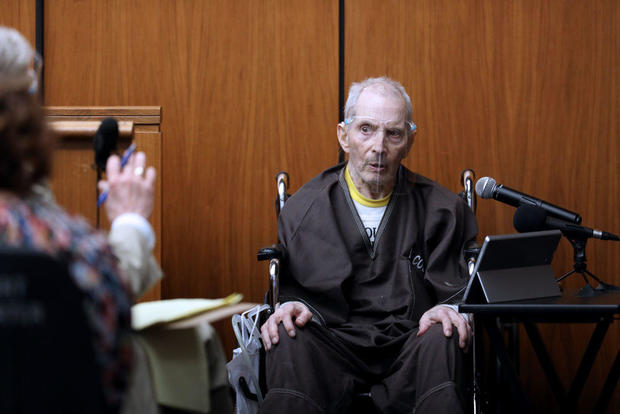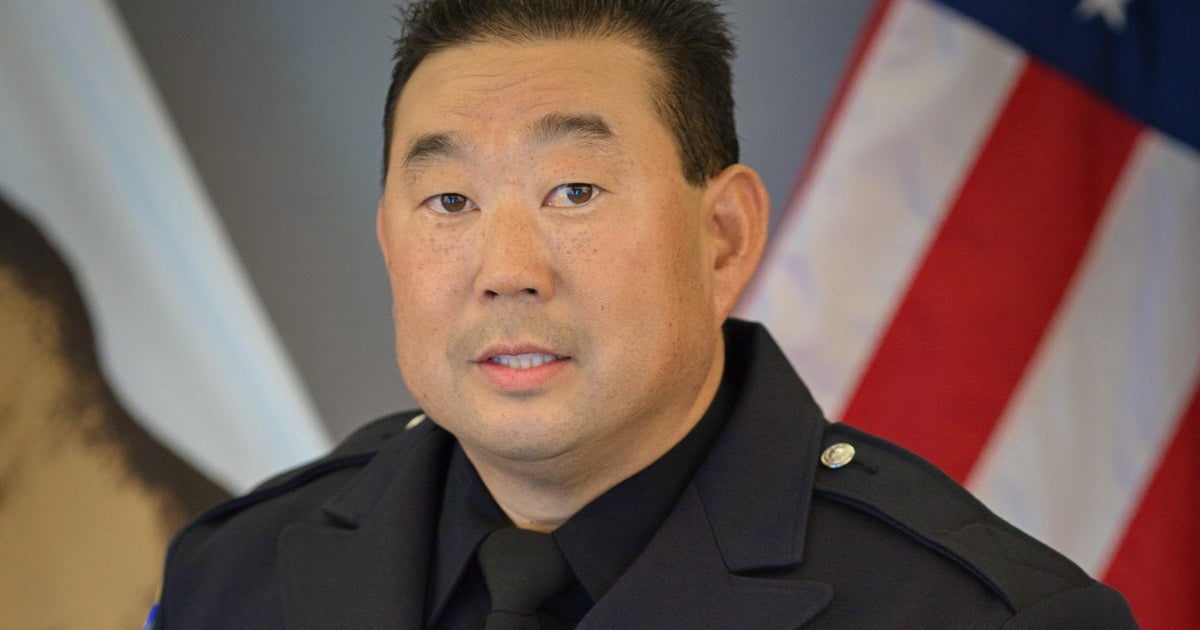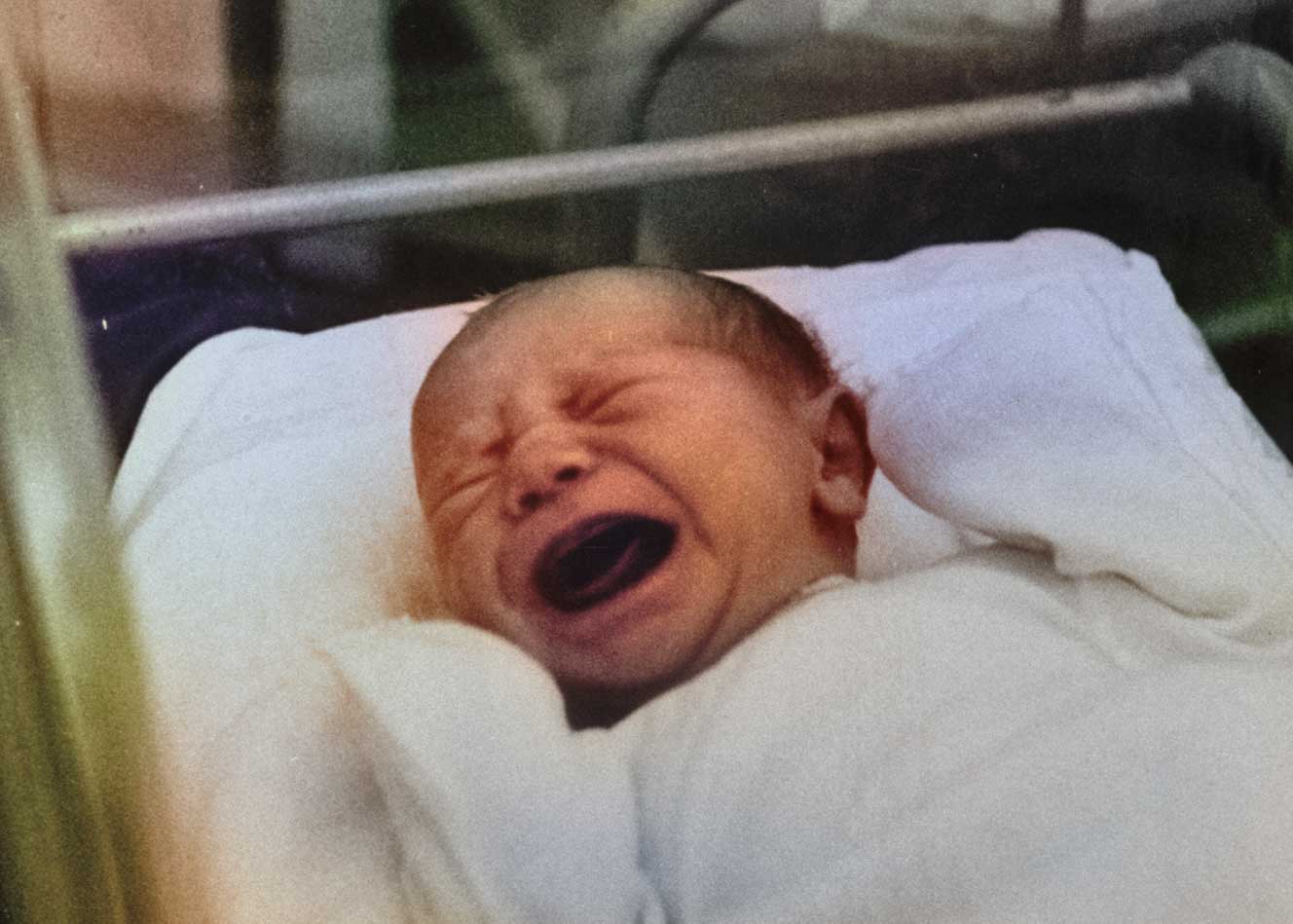Robert Durst, New York real estate heir convicted of murder, dead at 78
Robert Durst, the New York City real estate heir who was convicted of murdering his friend Susan Berman, has died in prison, his attorney confirmed to CBS News. He was 78.
His attorney, Chip Lewis, said the death was believed to be due to "natural causes associated with the litany of medical issues we had repeatedly reported to the court over the last couple of years."
Durst was convicted in September and sentenced to life in prison without the possibility of parole in October. Durst was believed to have killed Berman at her Los Angeles-area home in 2000 to prevent her from incriminating him in the 1982 disappearance of his wife, Kathie. After decades as an unsolved case, Durst was just charged with his wife's murder in October.
"After 40 years spent seeking justice for her death, I know how upsetting this news must be for Kathleen Durst's family," Westchester County District Attorney Miriam E. Rocah said in a statement Monday after news of his death. "We had hoped to allow them the opportunity to see Mr. Durst finally face charges for Kathleen's murder because we know that all families never stop wanting closure, justice and accountability."
Durst's troubled history also included a trial for the 2001 killing of a neighbor in Galveston, Texas, for which he was acquitted.
Durst became a national sensation after the 2015 HBO documentary "The Jinx," which chronicled his involvement in the three cases. At the end of the documentary, he appeared to confess to the crimes that he had been implicated in, being caught on a mic while in the bathroom saying to himself, "There it is. You're caught. Killed them all, of course."
He had several medical issues while in court, including testing positive for COVID-19 earlier this year, and was briefly on a ventilator.
Durst was the son of New York real estate magnate Seymour Durst and the brother of Douglas Durst, who now is at the helm of the billion-dollar Durst Organization, which has a portfolio that includes One World Trade Center. Prosecutors said Robert Durst settled his share of the family fortune and estimated his net worth at $100 million.
Berman, whose father was a suspected Las Vegas mob figure, was a close friend of Durst's from college, and the two became closer while he was married to Kathleen McCormack Durst, known as Kathie.
In late January 1982, Kathie Durst, who was finishing medical school, suddenly disappeared. Her friends say it was after a confrontation with her husband at their suburban weekend home in Westchester County, but Robert Durst claimed he dropped her off to catch a train back to New York City and that's the last time he ever saw her.
Durst called New York police to report her missing, and as the media picked up on the story, Berman became his spokesperson. In spite of efforts by police and Kathie's family and friends, investigators never found her body and the case went cold for many years.
After then-Westchester County District Attorney Jeanine Pirro picked up in the case in 2000, Durst fled for Galveston, Texas, where he disguised himself as a mute woman. A month after he went to Galveston, and 1,600 miles away in Los Angeles, homicide detectives were investigating the murder of Durst's best friend Susan Berman, whose body was found on Christmas Eve.
Detectives had gone to her address after receiving a letter addressed to the "Beverley Hills Police Department" saying a "cadaver" was at that address. They found Berman, who had been shot in the back of the head.
At the time, Durst was not even considered a suspect. But nine months later, several garbage bags full of human remains of Morris Black, a neighbor of Durst's in Galveston, washed up on the Gulf Coast of Texas. Durst claimed he shot and killed Black in self-defense after finding him in his living room, although Cody Cazalas, Galveston Major Crimes detective at that time, told CBS News' "48 Hours" that Durst "probably walked up behind him and shot him in the back of the head." The body had been cut up, the parts shoved into plastic bags, and dumped into the Galveston Bay.
Black's head was never found, so prosecutors were never able to determine whether it was an execution or simply an accident as Durst claimed, and Durst's lawyers argued that he chopped up the body out of panic. A jury acquitted him in 2003 of first-degree murder, and in 2004, he pleaded guilty to charges of bail jumping and evidence tampering. He was sentenced to five years but was given credit for time served, so he served another three years before being freed.
Although he was the subject of a 2010 fictional movie "All Good Things" about Kathie's disappearance, public interest in the case really picked up after "The Jinx." Durst was confronted with the letter to police about Berman's body and another letter he had written where he had misspelled "Beverley." He could not confirm which one he had written, and then when he excused himself to use the bathroom, he made the famous mutterings.
He was charged shortly afterward with Berman's murder. When he was arrested in New Orleans in March 2015, he had a mask, fake identification, drugs, $40,000 and a loaded handgun in his hotel room. He alleged that he had been "on meth the whole time" when he spoke to filmmakers, but the case moved forward anyway.
The trial began in March 2020 and but was adjourned for 14 months due to the COVID-19 pandemic. Prosecutors painted a portrait of a rich narcissist who didn't think the laws applied to him and ruthlessly disposed of people who stood in his way. They interlaced evidence of Berman's killing with Kathie Durst's suspected death and Black's death.
"Bob Durst has been around a lot of years, and he's been able to commit a lot of horrific crimes. We just feel really gratified that he's been held accountable," Deputy District Attorney John Lewin said after Durst was convicted.
"48 Hours" contributed to this report. For more, watch the "48 Hours" episode "Murder in Beverly Hills" here:




